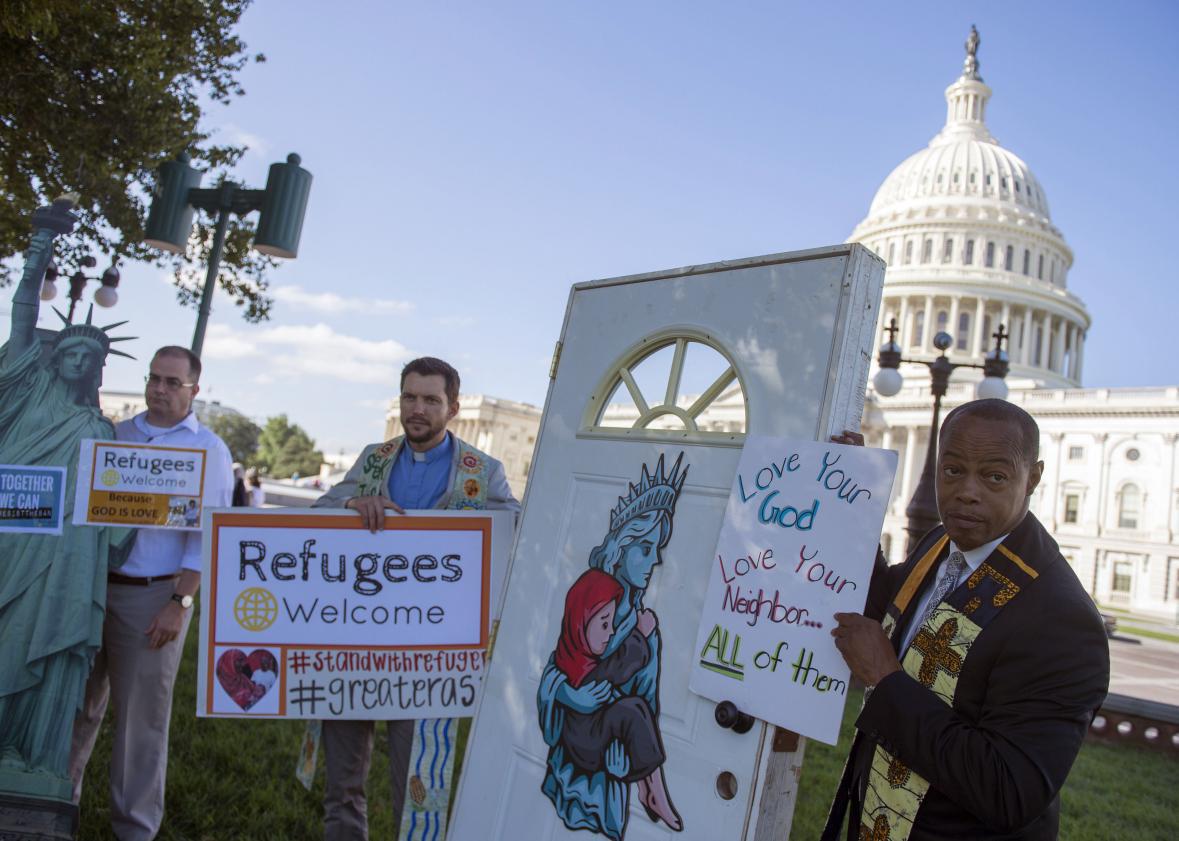President Trump signed an executive order Tuesday that places more stringent screening measures upon refugees from 11 undisclosed countries seeking to resettle in the U.S.
The order restarts the refugee resettlement program that was suspended in January as part of Trump’s first executive order banning immigrants from seven majority-Muslim countries, but this time the order permits authorities to “apply special measures to certain categories of refugees whose entry continues to pose potential threats to the security and welfare of the United States.”
Those “special measures” include more rigorous interviews and cross-checking “biometric and biographic information” with federal watch lists and databases. The order also begins a 90-day review period for the administration to look into any perceived “security risks” from admitting refugees from the 11 countries.
The administration has not said which 11 countries fall under the new refugee scrutiny. Foreign policy experts assume the countries are Egypt, Iran, Iraq, Libya, Mali, North Korea, Somalia, South Sudan, Sudan, Syria, and Yemen, based on the administration’s statement that the refugees in need of deeper vetting are from the countries that had already been on a list for higher security screening overall. An official told Politico that people from those countries would be admitted “on a case-by-case basis.” Stateless Palestinians living in those countries will also be subject to the restrictions.
The previous freeze on all refugee resettlement, which was extended in June, was set to expire Tuesday. The new executive order does not affect the other elements of Trump’s troubled travel bans, which attempted to completely block immigrants and refugees from certain Muslim-majority countries. The third and most recent version of his travel ban, which like the others was temporarily halted, targets six Muslim-majority countries, as well as Chad, North Korea, and Venezuela.
Advocates for refugees argue that the United States’ screening process is already one of the most intense in the world and that additional measures could dramatically slow and restrict resettlement for vulnerable people fleeing dangerous or inhumane conditions. Others have argued the rules amount to a de facto ban on refugees from the 11 nations, many of which are Muslim-majority countries.
According to Reuters, a program that allowed refugees to bring their spouses and children to the U.S. is also being placed temporarily on hold until the administration intensifies that screening process.
